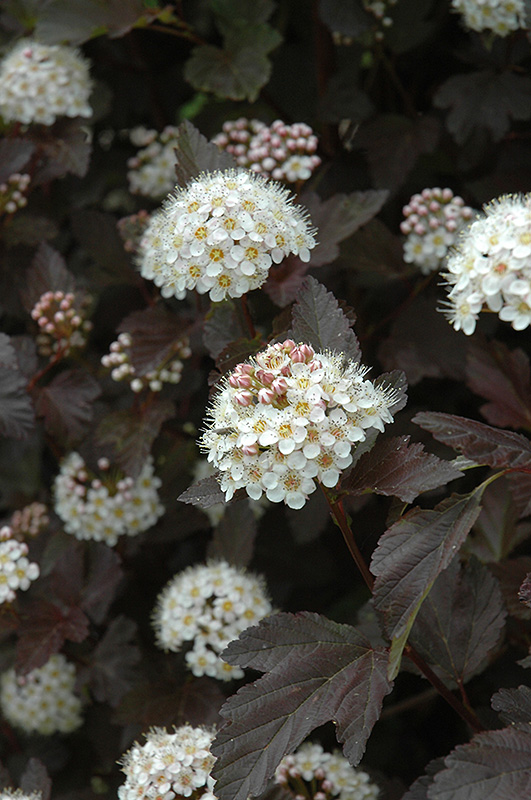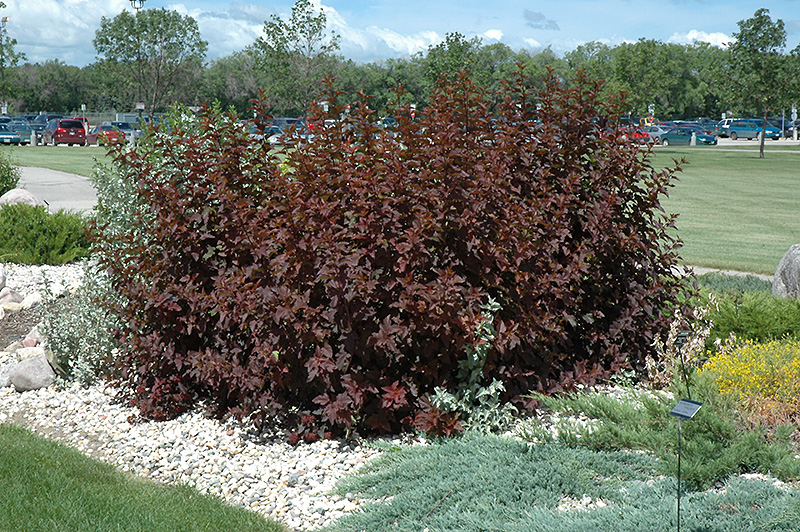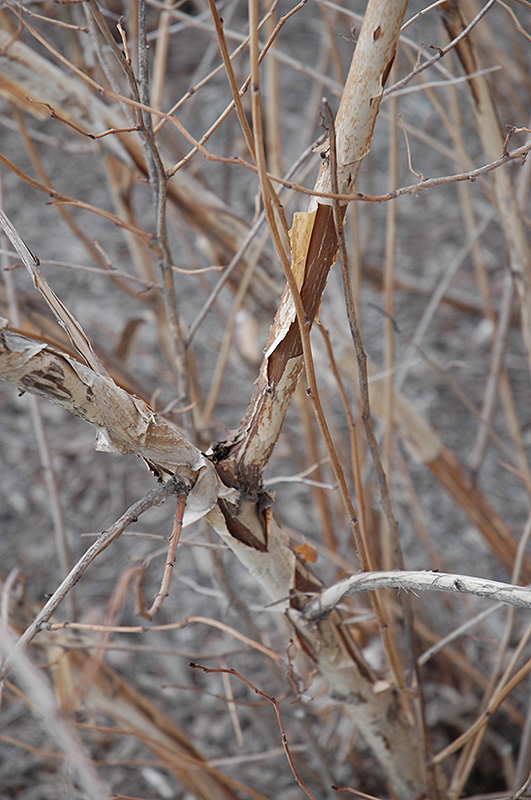Diablo Ninebark
Physocarpus opulifolius 'Monlo'
Height: 8 feet
Spread: 8 feet
Sunlight:
![]()
![]()
Hardiness Zone: 2
Other Names: Eastern Ninebark
Description:
A large spreading shrub with intensely purple leaves all season long, small white flowers followed by pretty reddish fruit which show well against the foliage, and interesting peeling papery bark; extremely tough and durable, makes a superb color accent
Ornamental Features
Diablo Ninebark features showy clusters of white flowers at the ends of the branches from late spring to early summer, which emerge from distinctive pink flower buds. It has attractive deep purple deciduous foliage which emerges burgundy in spring. The serrated lobed leaves are highly ornamental and turn an outstanding red in the fall. It features abundant showy red capsules from early to mid fall. The peeling tan bark adds an interesting dimension to the landscape.
Landscape Attributes
Diablo Ninebark is a multi-stemmed deciduous shrub with an upright spreading habit of growth. Its relatively coarse texture can be used to stand it apart from other landscape plants with finer foliage.
This shrub will require occasional maintenance and upkeep, and can be pruned at anytime. It has no significant negative characteristics.
Diablo Ninebark is recommended for the following landscape applications;
- Accent
- Mass Planting
- Hedges/Screening
- General Garden Use
Planting & Growing
Diablo Ninebark will grow to be about 8 feet tall at maturity, with a spread of 8 feet. It has a low canopy, and is suitable for planting under power lines. It grows at a medium rate, and under ideal conditions can be expected to live for approximately 30 years.
This shrub does best in full sun to partial shade. It is very adaptable to both dry and moist locations, and should do just fine under average home landscape conditions. It may require supplemental watering during periods of drought or extended heat. It is not particular as to soil type or pH. It is highly tolerant of urban pollution and will even thrive in inner city environments. Consider applying a thick mulch around the root zone in both summer and winter to conserve soil moisture and protect it in exposed locations or colder microclimates. This is a selection of a native North American species.



